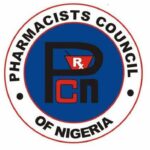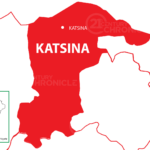The new Pharmacy Council of Nigeria Act recently signed by President Muhammadu Buhari has conferred powers on the council to suspend, revoke, withdraw or cancel premises licences of erring pharmacists.
The Chairman of the governing council of the organization, Prof. Ahmed Tijjani Mora, in a statement on Wednesday, said the previous act called the Pharmacists Council of Nigeria (PCN) has no provision for revocation of premises license.
How I overcame paralysis — Gospel singer, Tim Godfrey
Novena University Gets NUC Approval to Commence Medicine, Dentistry and Pharmacy
The Senior Special Assistant to the President on National Assembly Matters (House of Representatives) Nasir Illa had on Monday announced that President Buhari had assented to the Pharmacy Council of Nigeria (Establishment) Act 2022 Bill along with seven other bills.
Prof Mora said fines for offences in the old act ranged from N250-N1000, but is now between N250,000 and N2,000,000 in the new act.
He said PCN had also been strengthened from just regulating pharmacists alone to regulating pharmacists, pharmacy technicians, and patent medicine vendors
“There is now inclusion of all stakeholders involved in pharmacy distribution chain.
“There is an expanded powers and functions of the new council to inspect, approve, licence and regulate the registration and practice of pharmacy , pharmacists, pharmacy technicians, and patent medicine vendors,” he said.
While thanking President Muhammadu Buhari for signing the Pharmacy Council of Nigeria (Establishment) Act 2022 Bill into law, he said the new law also expressly states that the Federal High court has jurisdiction to hear and determine criminal and civil matters under the act.
Mora said the now repealed Pharmacists Council of Nigeria (PCN) act was established through Decree 91 of 1992, 30 years ago.
He described the new act as a landmark achievement in the regulation and control of pharmacy education and training as well as practice in Nigeria.
He said it has been a long journey in the enactment of instruments that regulate and control pharmacy education, training and practice since 1927 with the Board of Medical Examiners.

 Join Daily Trust WhatsApp Community For Quick Access To News and Happenings Around You.
Join Daily Trust WhatsApp Community For Quick Access To News and Happenings Around You.

